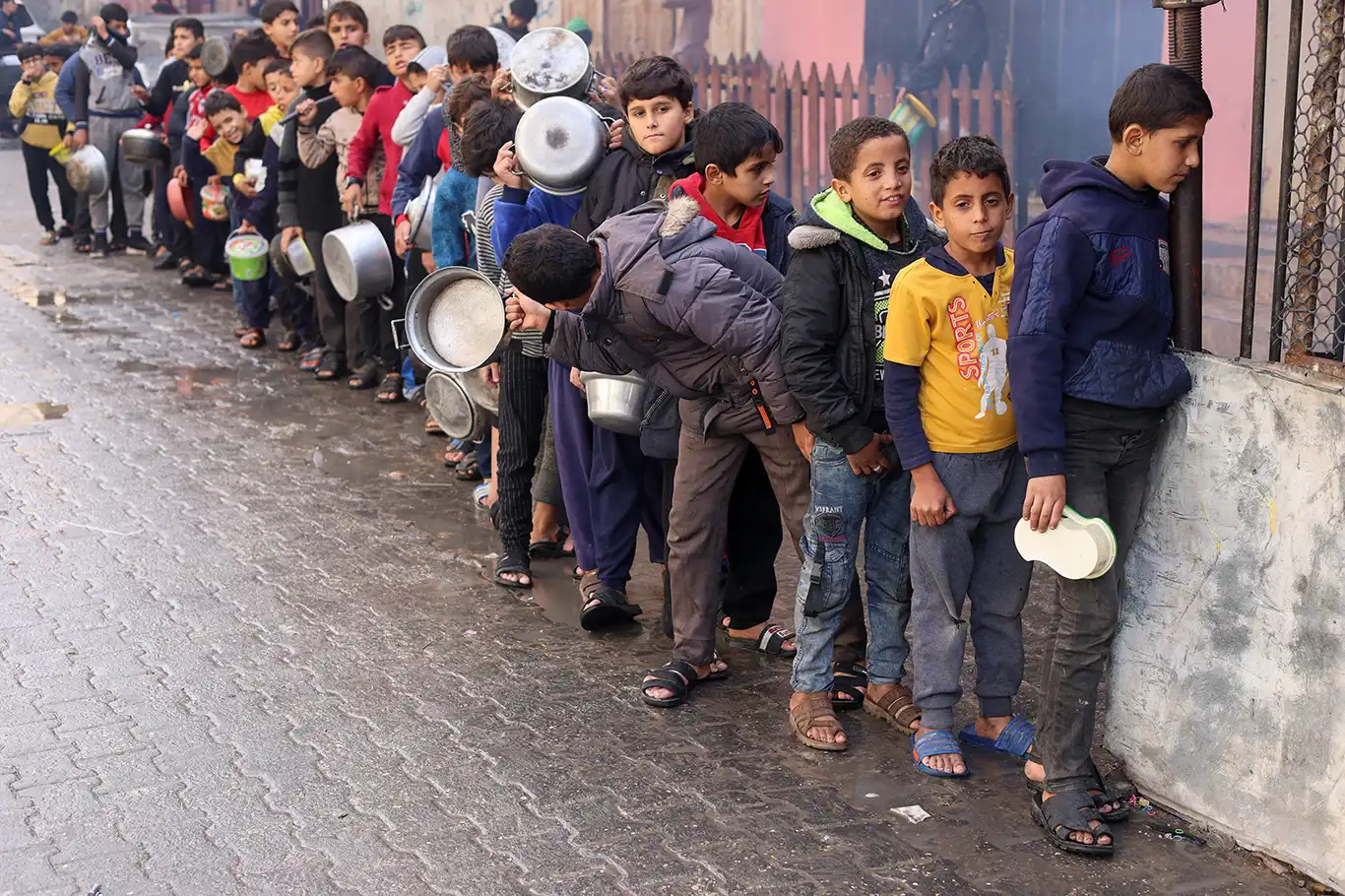UNICEF: Over one million children in Gaza face hunger and thirst despite ceasefire


More than one million children in Gaza are still in desperate need of food, clean water, and medical care despite the ongoing ceasefire, the United Nations Children’s Fund (UNICEF) warned on Sunday.
Speaking in a press interview, UNICEF spokesperson Tess Ingram said that thousands of children in the besieged enclave continue to go to bed hungry every night, while nearly 650,000 children remain unable to return to school due to the destruction of educational facilities and the lack of basic infrastructure.
“The ceasefire is good news because it means an end to the daily bombardment that was killing children,” Ingram said. “But it is not enough on its own to end hunger or ensure families have access to safe drinking water.”
According to Ingram, families across Gaza continue to face life-threatening shortages of essential resources. “Families in Gaza are still struggling daily to survive, and the infrastructure that provided water and medical care for children has been severely damaged, making access to these basic services extremely difficult,” she said.
UNICEF reports that although the amount of humanitarian aid entering Gaza has slightly increased since the ceasefire took effect, the current levels remain “woefully inadequate” and far below the quantities that entered before the war. Aid agencies warn that the limited flow of food, water, and medicine has left many communities dependent on irregular and insufficient supplies.
Ingram also highlighted the severe strain on Gaza’s healthcare system, saying that many hospitals remain only partially functional and are overwhelmed with patients suffering from malnutrition, dehydration, and preventable diseases. “Thousands of children are still going to bed hungry, while others in hospitals are suffering from treatable illnesses, but the lack of doctors and medicine is leaving them to suffer without treatment,” she said.
UNICEF estimates that more than 650,000 school-aged children are unable to attend classes due to the destruction or closure of schools across the Gaza Strip. Many school buildings have been converted into temporary shelters for displaced families, leaving the education system in a state of paralysis.
While welcoming the ceasefire as a crucial step toward ending violence, UNICEF stressed that the situation in Gaza requires far more than a pause in fighting. “The ceasefire must be matched with full and unhindered humanitarian access,” Ingram urged, calling for the immediate restoration of water networks, medical services, and education facilities.
UNICEF and other humanitarian organizations continue to appeal for greater international support to deliver emergency aid and begin the process of rebuilding Gaza’s devastated infrastructure. (ILKHA)
LEGAL WARNING: All rights of the published news, photos and videos are reserved by İlke Haber Ajansı Basın Yayın San. Trade A.Ş. Under no circumstances can all or part of the news, photos and videos be used without a written contract or subscription.
Serbian police arrested 37 people on Sunday night following violent clashes outside the parliament building between supporters of the ruling Serbian Progressive Party (SNS) and anti-government protesters.
Romania has reported a total of 49 West Nile virus infections, including three fatalities, between June 2 and October 30, the country’s National Institute of Public Health (INSP) announced on Monday.
The Islamic Resistance Movement (HAMAS) has condemned the Israeli Knesset’s National Security Committee for approving and advancing a draft law that would permit the execution of Palestinian prisoners accused of carrying out operations against Israel, describing the move as a “blatant reflection of the occupation’s fascist and racist mentality.”
As Gaza continues to endure relentless bombardment and a crippling blockade imposed by the Israeli occupation, the Orphans Foundation (Yetimler Vakfı) is bringing hope to Palestinian families through its humanitarian initiative, “A Dining Table Every Day.”